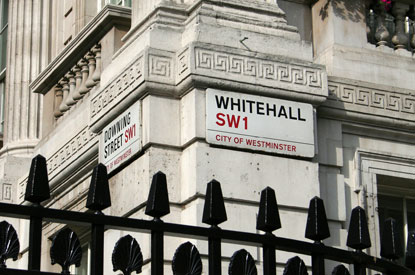The pace and scale of cuts to civil service numbers presents a ‘real risk to departments' ability to deliver services’, MPs have warned.
 Today’s report by the Public Accounts Committee found departments had not planned for how they would operate in the future with fewer staff. The civil service headcount is set to fall by around 114,000 (23%) between 2010 and 2015 as a result of the 2010 Spending Review.
Today’s report by the Public Accounts Committee found departments had not planned for how they would operate in the future with fewer staff. The civil service headcount is set to fall by around 114,000 (23%) between 2010 and 2015 as a result of the 2010 Spending Review.MPs found departments had acted quickly, cutting around 35,000 staff in 2011, but warned that this might not be ‘sustainable’.
The government needs to reform to ensure it works well with less people, the committee said, but it remained to be ‘persuaded that all departments are putting in place the fundamental redesign’ needed.
Committee member Richard Bacon said: ‘Few [departments] appear to be giving thought to how they are going to operate permanently with a lower number of staff.’
It was ‘imperative’ that they did so, he added, as any savings made from lower staff costs would not be sustainable unless departments completed long-term operating models for their businesses.
‘What is not known is whether the reductions in staff are having an effect on departmental performance and service standards. Given the speed with which staff cuts were carried out and the scale of the cuts, there are significant risks to service delivery,’ he said.
Managing early departures in central government also highlighted a ‘lack of clear information to track the extent to which this risk is materialising’. Without clear performance data, the MPs said, ‘we cannot know to what extent services are being adversely affected by staff departures’.
The overall initial cost to departments of the staff cuts should be around £600m. It is expected that this will be recouped within 11 to 15 months, after which departments would save around £400m annually.
Cabinet Office minister Francis Maude said departments had ‘moved quickly to reduce staff’, which would save considerably more than the costs of the departures.
‘Overall, our stronger controls on non-essential recruitment contributed to savings of nearly £1.5bn last year alone, when compared with the final year of the previous government,’ he added.
‘To succeed in the future we need a more flexible civil service that is better able to deliver our ambitious programme to reform the public services on which we all rely. That is why we are embracing new ways of delivering services, doing more digitally, improving performance management, improving our management information and increasing accountability.
‘Much of this was laid out in the Civil Service Reform Action Plan we published in June and we will be making further announcements in due course.’






















